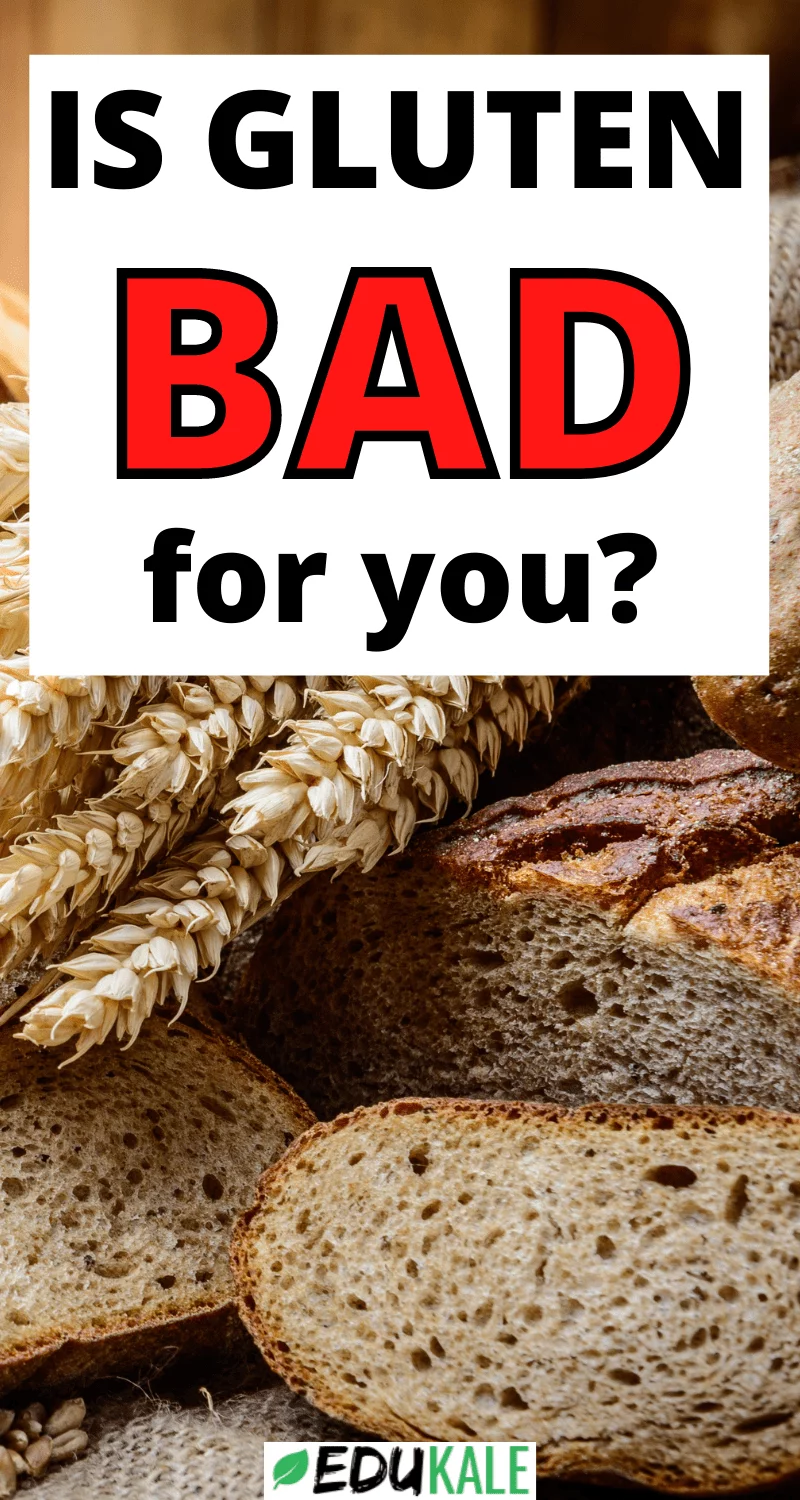Antwort Is gluten actually bad for you? Weitere Antworten – Should I really avoid gluten

If you don't have celiac disease or gastrointestinal irritation, Rajagopal recommends removing highly processed foods from your diet before removing gluten. Add in more fruits, vegetables, whole-grain bread or pasta, and lean proteins. Many people find they feel better just by eating better, not by removing gluten.Gluten has also been tied to bowel diseases, such as irritable bowel syndrome (IBS) and inflammatory bowel disease (IBD), which includes Crohn's disease and ulcerative colitis ( 17 ). Plus, it's been shown to alter gut bacteria and increase intestinal permeability in people with IBD and IBS ( 18 ).“Wheat—and the main protein it contains, gluten— has been cited as a cause of weight gain, 'brain fog,' skin rashes, joint pain, headaches, tiredness, allergies, gas, intestinal distress, irritable bowel syndrome, depression and, in the case of celiac disease—where the immune system goes haywire and attacks the body— …

Why is gluten bad for your gut : Notably, along with other dietary elements, gluten may contribute to the development of inflammatory intestinal disorders, such as inflammatory bowel disease (IBD), as well as functional gastrointestinal disorders (FGIDs) and concur in symptom exacerbation, although its exact role is still under investigation.
Why you shouldn’t go gluten-free
If you embrace such a diet, you'll end up "eating a lot of foods that are stripped of nutrients," Tallmadge said. Studies show gluten-free diets can be deficient in fiber, iron, folate, niacin, thiamine, calcium, vitamin B12, phosphorus and zinc, she said.
Does gluten-free really make a difference : A gluten-free diet helps manage symptoms of celiac disease and other medical conditions associated with gluten consumption.
A gluten-free diet is essential for those with celiac disease. However, there is little evidence to support its use in people without celiac disease, and it may increase the risk of nutritional deficiencies. Gluten is a protein found in wheat, barley, and rye. This protein helps foods hold their shape.
So, why the sudden increase in gluten intolerance in the past 50 years Experts have given the following reasons as potential causes: Wheat grain has been altered to provide crops that are more resistant to drought and bake more easily. Our stomachs, however, have not adapted as quickly to these changes.
Is gluten-free overblown
There is no compelling evidence that a gluten-free diet will improve health or prevent disease if you don't have celiac disease and can eat gluten without trouble.A gluten-free diet helps manage symptoms of celiac disease and other medical conditions associated with gluten consumption. This type of diet also has gained popularity among people without gluten-related medical conditions. The claimed benefits of the diet are improved health, weight loss and increased energy.Overall, these studies show that dysbiosis of the gut microbiota seen in celiac disease patients is not fully reversed by the adoption of a gluten-free diet. In conclusion, these studies show that a gluten-free diet can cause changes in the gut microbiota, and that this could potentially be harmful.
“People are eating a lot more processed food rather than whole foods,” she says. “Gluten goes through a lot of processing, which makes it even less tolerable for those with sensitivities or allergies.” Processed foods that contain gluten include: Bread.
What are the cons of being gluten-free : Bad gut health
One study found that a month on a gluten free diet may damage gut bacteria and immune function, potentially leading to an overgrowth of harmful bacteria in the intestines.
Why are so many doctors against a gluten-free diet : Numerous studies have shown that diets that are gluten free tend to be deficient in protein, folate, iron, niacin, riboflavin, thiamin, B12, zinc, selenium, and fiber. In addition, they are more apt to have higher levels of nickel, which is highly allergenic to some patients.
Why do people lie about gluten allergy
Generally speaking, most people aren't out-and-out lying maliciously when they say (erroneously) that they have a food allergy. They might instead have a food sensitivity, which involves a different set of symptoms. They might be trying to lose weight, but not want to admit it.
People with gluten sensitivity usually do not have damaged gut lining, which is a key feature of celiac disease ( 12 ). Yet, it's scientifically unclear how gluten sensitivity works.It's common these days to hear people say they are avoiding gluten, and gluten-free foods are everywhere. While it's true that going gluten-free is just a dietary fad for some people, for those with celiac disease or gluten sensitivity, there's a genuine medical need to avoid gluten.
Why is everyone suddenly allergic to gluten : Modern wheat varieties, altered wheat composition resulting from breeding practices, environmental elements such as exposure to pesticides and herbicides, and disturbances in gut microbiota all loom as influential factors in this complex puzzle.






